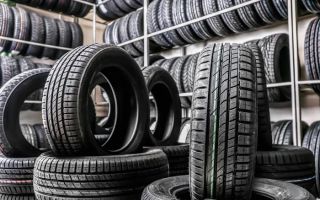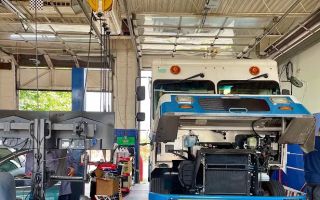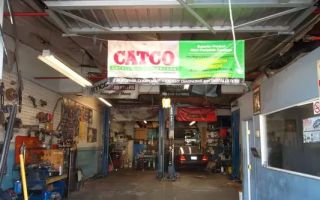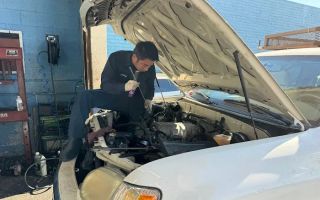How to Know If My Flat Tire Needs to Be Replaced: Expert Guide to Tire Replacement
If you’ve ever found yourself stranded on the side of the road with a flat tire, you know how frustrating it can be. It’s one of those unexpected car problems that can cause a lot of stress. But how do you know if your flat tire needs to be replaced or if it can be repaired? I’ve been in this situation more than once, and through trial, error, and a little bit of professional advice, I’ve learned the signs to look for when deciding whether a flat tire can be repaired or should be replaced. Let me walk you through what I’ve learned and how you can tell if it’s time for a new tire.

MR. TIRE INC.
2078 New York Ave, Huntington Station, NY 11746, USA
1. The First Step: Inspect the Damage
Before jumping to conclusions, take a moment to inspect the flat tire. The most obvious sign that a tire is beyond repair is the size and location of the damage. If you’re on the side of the road dealing with a flat, it’s tempting to just call for a tow truck or roadside assistance immediately. However, before you do that, here are a few things to check:
- Check for Punctures: A small nail or screw can cause a flat tire, and in some cases, these types of punctures can be repaired. If the hole is smaller than ¼ inch, a professional can patch it up without needing to replace the tire.
- Look for Sidewall Damage: If the damage is on the sidewall of the tire (the area between the tread and the rim), it’s generally considered irreparable. The sidewall is critical for structural integrity, and damage to it means the tire has lost its ability to hold air properly.
- Examine the Tread: If your tire is worn down to the point where the tread is almost gone, you might need a replacement even if the tire isn’t flat. A worn-out tire can cause safety issues, especially in wet conditions.
In my experience, it’s always best to get a professional opinion when it comes to sidewall damage. It might be tempting to try and save some money with a DIY fix, but sidewall damage is a serious safety concern, and it’s always better to be safe than sorry. If you need help with this, don’t hesitate to call a reliable towing service like Rescue & Towing, who can quickly assist with tire repairs or get your vehicle to a nearby shop for a professional assessment.

MR. TIRE INC.
2078 New York Ave, Huntington Station, NY 11746, USA
2. Understanding When a Repair Is Not Enough
So, how do you know when a repair just isn’t going to cut it? During one of my earlier flat tire experiences, I tried to patch up a puncture thinking I could stretch out the life of my tire. However, a few weeks later, I ended up with another flat because the repair wasn’t effective. Here are a few signs that a repair won’t be enough:
- Multiple Punctures: If your tire has more than one puncture, especially if they’re in the same area, it may not be safe to repair. Multiple punctures compromise the structural integrity of the tire, making it unsafe to drive on.
- Damage to the Bead: The bead is the area of the tire that seals against the rim. If it’s damaged, the tire won’t stay inflated even after a repair, and replacing the tire becomes the safer and more practical option.
- Severe Tread Wear: When the tread is extremely worn down, the tire can no longer provide the traction needed for safe driving. Even if there’s no obvious puncture, it’s a sign that the tire should be replaced.
In these cases, the cost of a repair might be too close to the cost of a replacement, so it’s often better to replace the tire outright to avoid ongoing issues. I learned this the hard way when I ignored small punctures and ended up needing a new tire anyway.
3. Consider the Age of the Tire
Another factor to consider is the age of your tire. While it may not seem like a flat tire issue, an older tire is much more likely to develop leaks, blowouts, or other issues. Most tires have a lifespan of about six years, after which they become much more prone to damage. If you’ve had your tire for a few years and are dealing with repeated flats, it might be time to replace it.
I once had a tire that started to give me problems after about five years of use. At first, it was just a slow leak that I could fill up every week, but eventually, it became a bigger issue. If your tires are older than six years, no matter how good the tread looks, it’s best to replace them. The rubber deteriorates over time, and it won’t be able to hold up under the same conditions as a newer tire.
4. The Importance of Regular Tire Maintenance
Regular maintenance can help you avoid flat tires altogether or at least extend the life of your tires. I learned this through personal experience, as I was once caught off guard by a sudden flat. I quickly realized that regular tire checks—such as ensuring proper air pressure and rotating the tires—are essential for keeping your tires in good condition.
One of the easiest ways to maintain your tires is to check the air pressure regularly. Underinflated tires are more likely to wear out prematurely, while overinflated tires can lead to a blowout. Keep your tires inflated to the manufacturer’s recommended pressure, which you can usually find on a sticker inside the driver’s side door or in the vehicle’s manual.
5. Real-Life Case: A Nighttime Towing and Flat Tire Replacement Experience
There was one instance when I was on a long road trip at night and found myself with a flat tire in a remote area. I didn’t have the tools to fix it myself, and it was too dark to do anything safely. I called Rescue & Towing for assistance, and they arrived quickly to assess the situation. The technician confirmed that my tire was beyond repair due to a large puncture and that the tire would need to be replaced. I was impressed with how fast and efficient the service was, and they even took the time to explain my options for getting a replacement tire that would best fit my car.
This experience taught me the value of having a reliable towing service on hand in case of emergencies. Whether you need a tire replaced on the spot or a tow to a nearby shop, having a trusted service provider can make all the difference in a stressful situation.
6. How to Handle a Flat Tire in the Future
The best way to avoid getting stuck with a flat tire is to always be prepared. I carry a spare tire, a jack, and basic tools in my car at all times, just in case. However, it’s also a good idea to have a towing service like Rescue & Towing programmed into your phone for quick access. That way, you’re not left wondering what to do if something goes wrong.
Flat tires are an inconvenience, but they don’t have to be a major headache. By keeping an eye on your tires’ condition, maintaining them properly, and knowing when to replace them, you can ensure that you stay safe on the road. If you find yourself in need of assistance, don't hesitate to call a professional for help with your tire issues. Whether it’s a replacement or a simple repair, taking care of your tires is an investment in your safety and your car's longevity.























